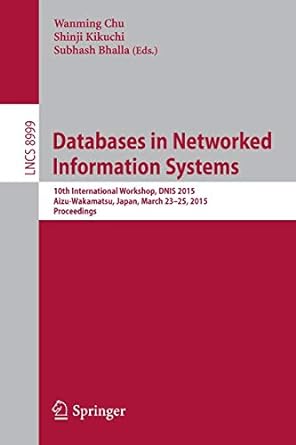Question
I am having trouble understanding these problems. For each question can you please explain how you came up with your solution? Thank you. Question 1:
I am having trouble understanding these problems. For each question can you please explain how you came up with your solution? Thank you.
Question 1:
How many times do you need to "delete" memory to prevent this code from leaking?
float *myData[3];
float *myPtr = nullptr;
for(int i = 0; i < 2; i++)
myData[i] = new float [10];
myData[2] = new float;
myPtr = myData[2];
a) 16
b) 4
c) 13
d) 12
e) 3
Question 2:
How many times do you need to "delete" memory to prevent this code from leaking?
float *myData[3];
float *myPtr = nullptr;
for(int i = 0; i < 2; i++)
myData[i] = new float [10];
myData[2] = new float;
myPtr = myData[2];
a) 16
b) 4
c) 13
d) 12
e) 3
Question 3:
What is one line of preprocessor directive that you can write to guard against code in a header file being defined more than once?
Question 4:
Which is not a valid scope?
a) Pointer
b) Global
c) Brace
d) Function
e) Namepace
f) class
Question 5:
Given a class:
MyClass
And the following function:
void TestFunction(MyClass mc)
{ /*irrelevant code omitted*/}
Which member function of MyClass will be called as a result of, but not necessarily on, the following line:
Test(someExcistingMyClassObject);
a) Copy Constructor
b) Assignment Operator
c) Destructor
d) Constructor
Question 6:
What will the code print out:
void AddPrimes(vector
{
list.push_back(3);
list.push_back(5);
list.push_back(7);
list.push_back(11);
list.push_back(13);
}
vector
primes.push_back(2);
AddPrimes(primes);
for(unsigned int i = 0; i < primes.size(); i++)
{
cout << primes[i];
}
Step by Step Solution
There are 3 Steps involved in it
Step: 1

Get Instant Access to Expert-Tailored Solutions
See step-by-step solutions with expert insights and AI powered tools for academic success
Step: 2

Step: 3

Ace Your Homework with AI
Get the answers you need in no time with our AI-driven, step-by-step assistance
Get Started


